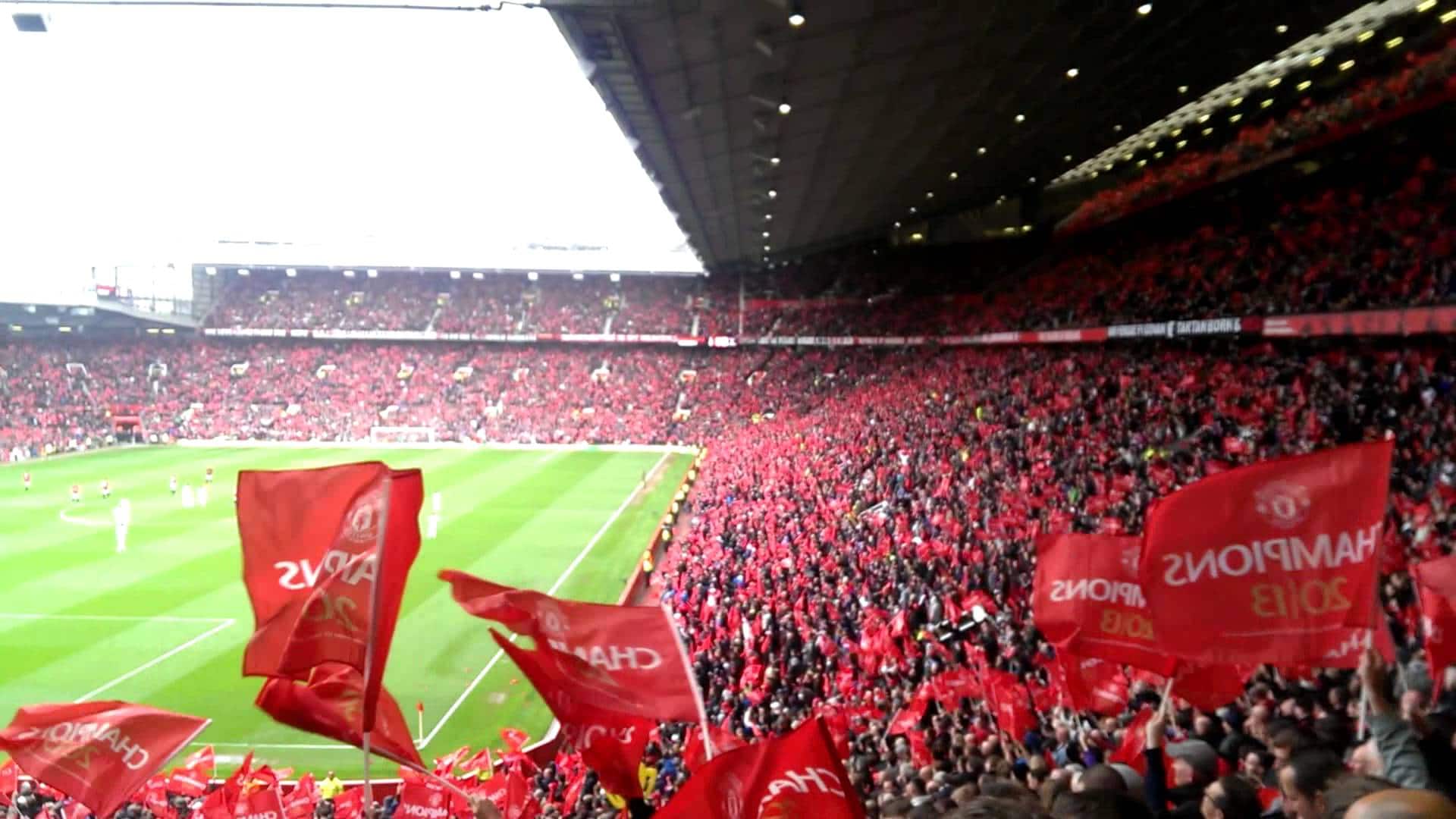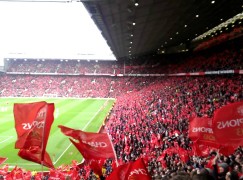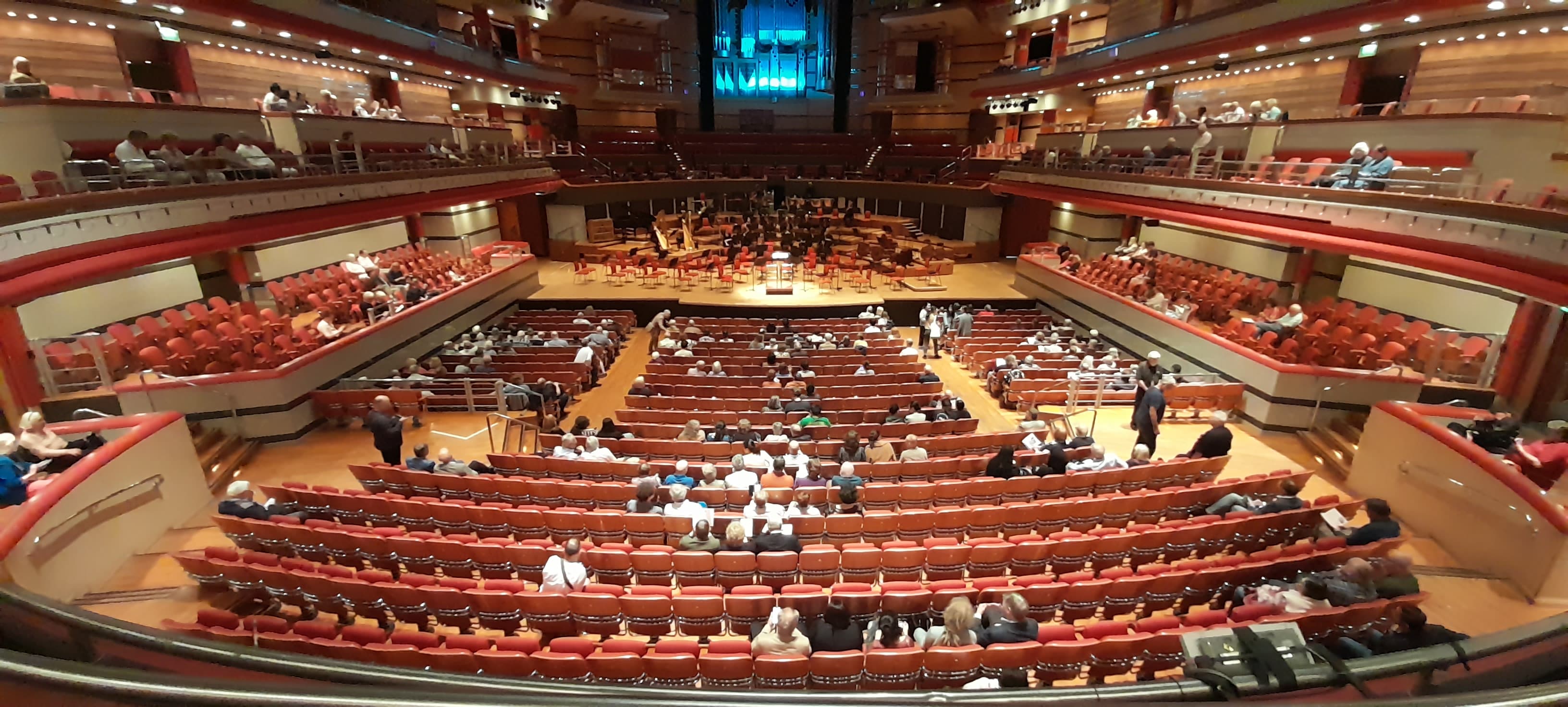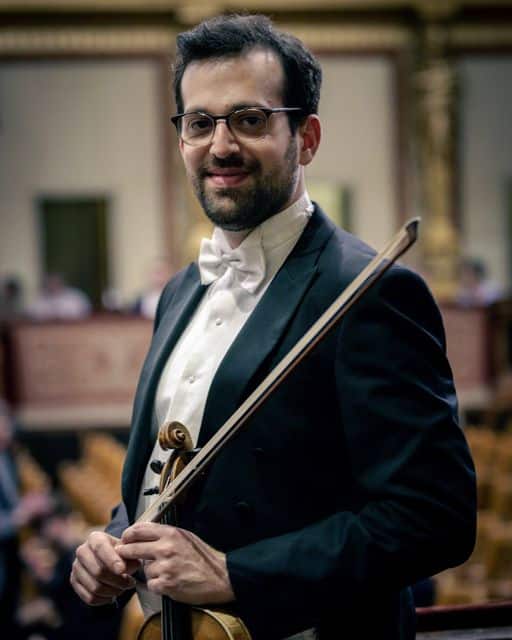What the arts need to learn from sport
mainFrom my essay in this month’s The Critic:
Since there’s nothing much happening on the music front, I shall write about a more important subject, namely sport. It is not me but governments who have declared sport to be more important, so much so that they have permitted televised football while opera houses and concert halls remain under lockdown. The official case for professional sport is that it is good for the public’s mental health. The case against concerts is — well, who cares?…
Sixty years ago, C.P. Snow argued that there were Two Cultures in which people in the humanities knew nothing of science, and vice-versa. That chasm has since been bridged. Most of us know a bit of both, especially in a pandemic when science is a matter of life or death and music is required for remembrance of the dead.
Both pursuits, however, have been overtaken by sport. In Snow’s time no cultured person would admit to knowing which team was top of the league. In ours, no conversation is complete without checking the latest scores on your phone.
Sports chat is the great ice-breaker, whether at the clinic while receiving your vaccine or at a Zoom lecture by a Nobel laureate. Most arts people look down on professional sport. They would do better to ask themselves why sport has displaced them at the heart of our culture, why politicians will always listen to Marcus Rashford ahead of Simon Rattle….
Read on here.







Most televised sport was performed without audiences or galleries in the early months — given the size of most sport venues I gather that has been relaxed as time went on and masks and social distancing rules became accepted and — for fans — compulsory.
I don’t think anyone has prevented the televising of music; it’s just that TV, even the BBC, lives or dies on people watching its output, and it appears that no TV outlet thinks there is much public demand for operas, concerts or even ballets on TV. The BBC did, I believe, televise Last Night of the Proms — as usual, sans audience.
Television is a good medium for sports but not for culture!
Indeed. Televised classical concerts reveal the trouble players have with squeezing their notes into the oboe, flitting the runs on the strings, pumping their anger into the trombone, the panick in the eyes of the conductor etc. – you see the efforts behind the screen of reverent distance that a life concert provides and it is rather discomforting.
There is a fundamental difference with major sports: clubs get most of their income from tv rights. Opera houses are making very little money from streaming (no one want to talks and give real numbers here)
Much to be said for and against the analysis and proposals in this article.
There has been a good reason why concerts of classical music take place in ‘reverend’ silence. It is in necessary silence, period. Audiences need to have silence and quiet to be able to hear the eprformers well and undisturbed. They know quite well that everybody else is hearing the same thing and that this experience binds the audience for an evening, without the need to have this bond confirmed by inappropriate behavior. Excitement happens – if it happens – entirely inside, and if there is enough reason, the bottled-up emotion may explode after the piece in the form of an extravert audience reaction. This is entirely normal and evolved after some 200 years of concert experience in which the noisy, unpredictable behavior of audiences: talking, laughing, nipping their coffee or wine, or indulging in amorous adventures in the boxes, was gradually overcome and understood as an obstacle to the experience of the music. The irritations of many people of today that there is not much ‘fun’ at concerts and nothing special to ‘see’, is a product of a slow erosion of maturity and intelligence in the West, and especially of aculturation.
But concert life could indeed be improved by more humanity, more flexibility, more improvisation, more contact with the performers, etc. without turning the concert into a cheap entertainment option next to the cinema and a karaoke club. Also the conservative PR machines which sell performers in the way of fashion models should be seen for what it is: parvenue kitsch, unreal, prostitution. And what about the programmer herd? Why are these so often entirely ignorant about the art form they are supposed to serve, or entirely indifferent? Etc. etc…
“The irritations of many people of today that there is not much ‘fun’ at concerts and nothing special to ‘see’, is a product of a slow erosion of maturity and intelligence in the West, and especially of aculturation.”
Exactly, and attention spans are shorter. Hollywood’s output, where the next movie has to be noisier and more action-packed than the last, is also a (willing) victim of this.
This is just the latest in a long series of “what is wrong with classical music” type articles, but the problem is not confined to classical music. It is rare to see someone reading a book (or a Kindle) on a train or bus these days (pre-Covid).
It much depends on places. And on countries. Once in Montpellier, I saw young people in parks and cafés, and on benches along an avenue, quietly reading a book, and cassières in shops quickly picking-up their tome again at a lull in client presence. I could see some of the titles, by Baudelaire, Tolstoy, Derrida (alas), Gide, Camus, Flaubert. The town had a university, so that makes a difference, but it was striking nonetheless.
Agree that universities and their environs are different.
Do most arts people really look down on sports? There are several well-known conductors who are baseball fans. Lots of musicians seem to be avid golfers. In my Tucson the arts community from all varieties seem quite involved in supporting our annual Fiesta de los Vaqueros. Of course there are the vegan, new age womyn with neon hair and tattoos who go crazy at the thought of boxing, rodeo or hockey.
And many orchestras, opera companies and ballet companies have football and/or cricket teams, so do not assume that ALL performers do not like and appreciate sport
Right J, I didn’t quite get this part of it either. Here in Washington I could tell you lots of stories about the connections between sports and the performing arts. One married couple, good friends of mine who are actors in musical theater, met after being cast in the same show. Their first interaction was after the guy saw the girl yelling at her newspaper (back when Americans read actual “newspapers”) over her disagreement with some trade the New York Mets had made or didn’t make at the baseball winter meetings. That impressed him more than her singing and acting (which are both superlative). Another story, which went viral locally and nationally, occurred during the Washington Nationals’ run to the World Series in 2019 when another actor, in this case an acquaintance of mine, was caught on camera celebrating a win but admitting in hilarious fashion that he was a Johnny-come-lately to rooting for the team. Look up “John Loughney since today” on Google and I’m sure it’ll come up. The team and the fan base practically adopted John as a mascot. Very entertaining.
But two other aspects of Norman’s column are right on target. One is that ordinary, spontaneous conversation about “classical” music – at bars, gatherings or anywhere else – is dramatically more important than any kind of top-down marketing that any organization could do. In fact, it should be the ultimate goal of that very marketing (and no, your orchestra’s OWN Facebook post is not what I’m talking about, no matter how many exclamation points you put in it). I’m not quite prepared to say that I think people should stand around yapping during some soloist’s carefully honed concerto performance with a major symphony orchestra, but who knows what ideas people can come up with to change the concert experience for the better. The other is that long-term, years-out planning for season schedules arguably has done quite a bit of damage, and spontaneous change-ups in programming and solo personnel may very well in the future accommodate the viral moments that the field so clearly needs. This is actually the third plea I’ve seen in this area – both Joshua Kosman at the San Francisco Chronicle and Anthony Tommasini at the New York Times have taken up this idea in their own ways in columns already in 2021.
PS to this audience: I know, I know, the “World Series.” I’m not going to get into why the US baseball championships are called that. It’s just the way it is, so chill out!
Indeed. There are frequently challenges between orchestras over the World Series. And Pinchas Zukerman, when he was at the National Arts Centre in Ottawa, had a box seat season ticket at the Senators’ arena and when the orchestra was touring in Israel frequently called in for scores, updates and occasional play-by-play.
both humanities and science have been taken over by applied social sciences, namely economics and finance, alas.
Your article was the most refreshing read I have had in a long time. Thank you, Mr Lebrecht. I agreed with everything(though in Snow’s time most cultured people could have told you which cricket team was top of the league). I would only put in a word for popular and ‘crossover’ musicians as creating the same sense of excitement and anticipation that contemporary classical-tradition music should create; and may I ask what concert and which theatre the image at the head of your article depicts? (I noted with pleasure the ladies and gentlemen standing around chatting, even as the lady sang and the military band played.)
In Snow’s time most ladies of culture enjoyed a good innings, too. And of course sports involving horses.
Covent Garden Theatre, Promenade Concert, cover of Covent Garden Quadrille, by Charles Coote Jr, dedicated to Signor Arditi. Arditi conducted the concerts 1874-1877. (Arthur Sullivan was in charge in 1878-1879.) Very nerdy to have found an answer my own question, and to add a link about Sullivan and the Promenade Concerts: https://gsarchive.net/articles/sull_proms/index.html
While some of the ideas are good at the margins, the main reason why sports are enjoyed by billions around the globe vs. a few million in Western countries and East Asia is that physical competition is a much easier activity to understand/ appreciate as it is much more elemental n universal that doesn’t need lots of education, training or cultural heritage. Watching Michael Jordan fly thru the air and slam dunking can be (and is) universally appreciated young n old from any race, vs. being in awe of the transcendental beauty of the Tristan chord.
Music is just as, or even more elemental than, sporting activity – why else would billions around the globe enjoy all sorts of popular or folk music, from the banal to the brilliant? Anybody who thinks that appreciation of sports needs no training has never tried to understand the rules of American Football, or the finer points of soccer played at the highest level. The stamina and concentration required for watching and staying awake all the way through an American Football match easily matches that required for a Wagner opera. The problem about appreciating classical music is not in the music itself; it is that too many persons think, just because they know about classical music, that they are superior culturally and intellectually to everybody else, and everybody else is quite justifiably put off by their attitude.
“too many persons think, just because they know about classical music, that they are superior culturally and intellectually to everybody else”
No, the problem is that too many people who know nothing about classical music want to believe this about those who do. In practice, they don’t have a clue whether they do or they don’t.
I am an avid supporter of my college basketball team. But I remember things from classical concerts much more vividly. And in another 100 years, who will be the more remembered – Handel or a basketball player?
“we need to stop planning concerts years in advance and allow performers to change the menu at the last minute”
I cannot disagree more with you on this, Norman. Some of us like to plan travel around a concert and we want to see an artist perform something specific. Indeed, the piece being performed is often a more important consideration than the performer. Last minute program changes would ruin it.
Not only that. To play well, musicians have to prepare carefully. Playing classical music is not something like opening the water tap.
Excellent questions, but I have many reservations about the answers.
I think I find more answers at Marlboro.
At Marlboro I see as much excitement as anyone could wish. It’s hard to spot empty seats. Music students line up by the sliding glass doors and have no seats. They listen to the music. I never noticed any focus on phones.
No amount of etiquette gets in the way of fun at Marlboro.
What is different? I suppose the level of spontaneity in the performances. It is the natural outcome of the circumstances: young musicians work side-by-side with seasoned mentors for a couple months.
How can that be replicated at mainstream urban venues is beyond me.
World class arts organizations need to adopt the accountability of major league sports teams. Once a musician is past their prime, they need to be put out to pasture the same way sports teams purge washed-up athletes. Their name, what they did 20 years ago, and/or who they are sleeping with shouldn’t matter if they can no longer do the job at a world class level. Opera especially needs to do this with their singers!
I have imagined a World Series for orchestras, it would be good publicity. But we should also have awards, in the US, our own, not the recording industry. The Stokies, I call them, after Leopold Stokowski. We should give annual awards for outstanding achievements in every area of classical music, except the trendy and trivial. Such things attract support and interest. It is part of the infrastructure we lack. We have no single national organization to represent us, we have no single national publication, and hence, have no lobbying strength, no economic clout.
Just who is going to act as the judges? And who votes? Do you make it like Britain’s Got Talent or its US equivalent where it’s open to the public each of whom has up to 5 or 10 votes? That’s madness as San Francisco voters are almost certain to vote for their local orchestra and so on.
Television is a visual medium. The snappiest dressers and most flamboyant conductor are bound to end up with the most votes from less musically knowledgeable viewers even though there are much better orchestras.
The UK already has classical awards with reasonable PR coverage. Has this attracted and new audiences? Highly unlikely!
“Both pursuits, however, have been overtaken by sport. In Snow’s time no cultured person would admit to knowing which team was top of the league.”
I keep thinking of the hilarious Monty Python show in which Karl Marx, Mao, and Lenin are asked (and fail to answer) questions on who is on top of the premier league. It’s funny.
Karl Marx was ineffective on the football field. The Germans were badly beaten by the Ancient Greeks.
https://www.youtube.com/watch?v=LfduUFF_i1A
Treating classical music in the style of a sports event has already been tried:
https://www.youtube.com/watch?v=MzXoVo16pTg
Fantastic – and even better in the non-video version https://www.youtube.com/watch?v=kRBdP8GepyQ
From the preamble: “Now, unlike the baroque masterworks, nineteenth-century pieces such as the Beethoven symphonies are usually so long and melodramatic that the average listener has to be informed through the use of program notes as to what’s going on, in order to prevent him from falling into a confused slumber.”
While I agree with some of what NL writes, I am very surprised that neither he nor any other correspondent so far has mentioned perhaps the key difference between sports and the arts, and it is a huge one – cash! Certainly the matter of television payments has been raised but that makes up just one part of the massive amount of cash pumped into sport nowadays.
When Dame Kiri Te Kanawa suggested to IMG’s founder and chairman Mark McCormack that he should think about adding the arts to his stable of mostly sports activities (I think IMG models was in operation by then), I suspect she was thinking more of the similarities between managing athletes and managing performers. At that time IMG had been going for about 25 years. It had not only started up and become the world leader in the business of athlete representation and events management, McCormack had realized that there was a huge untapped financial potential as sport became one of the main leisure activities of the post War era. Soon he started snapping up worldwide television rights with oodles of ongoing income accruing through both ‘live’ transmission and for subsequent use by the burgeoning number of worldwide sports cable channels over any number of future years. With that came greatly increased corporate sponsorship through tv exposure. From there it was natural to extend sponsorship to individual athletes with a number of exclusive private corporate events for a sponsor and its guests. Throw into that mix the actual management of major events and a vast revenue from corporate hospitality plus management of athletes revenues, and you have a business model that the arts can never come anywhere near.
With further encouragement from Jim Wolfenson, soon to be Chairman of the World Bank and a noted amateur cellist, McCormack took the plunge by first buying out the Hamlen Landau Management company. While the new IMG Artists would over time generate additional financial resources for its top artists like Dame Kiri and Itzhak Perlman and later on many tours with Jose Carreras, the big events that were to open up the unrealized profits with few exceptions did not work. 3 arena operas at Earls Court at the end of the 1980s would not have generated anything without their corporate hospitality revenues and a multi million dollar deal to take the second, Carmen, to Tokyo. Its attempt to take Domingo into arenas as Tibor Rudas was doing with Pavarotti generally failed after 2 short tours. It’s attempts to woo Domingo on a worldwide basis also failed.
A takeover of the Orange Festival in France also failed. In other words, the big money spinning events largely eluded it. McCormack learned the heard way that whilst sport generates extremely high revenues with a smallish number of staff, the arts remained an activity requiring a very large staff generating only small profits from lots of engagements from its roster of artists.
When you can pack 50,000 or more into a sports stadium and 150,000 plus into a major 4 day golf tournament and then add on top of the ticket sales revenues all the attendant additional revenue streams, you can afford to make sports events far more accessible to the general public than in a 1,000 – 3,000 seat arts venue.
Managements could and should find ways to break out of the current performance straightjackets. But how this can be done when following the lead of sports, I totally fail to see.